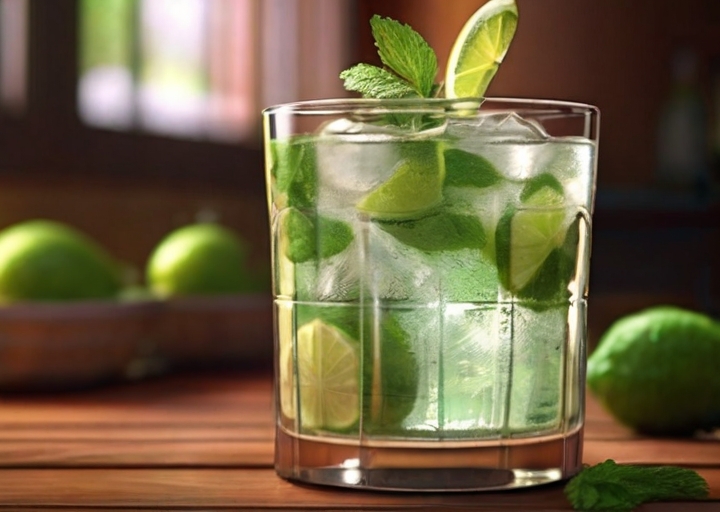Content Index

Introduction to the Mojito Legacy
The captivating history of the Mojito, like its Cuban counterparts—the daiquiri and the cuba-libre—lacks extensive documentation. Nonetheless, whispers of its creation over a century ago by an Englishman who introduced it to the bars of Cuba and Havana persist.
The Birth of the Mojito
The Mojito’s genesis, much like its fellow Cuban concoctions, is said to trace back to the hands of an Englishman over a century ago, who initially brought it to the bars of Cuba and Havana. It’s a tale tinged with Caribbean flair, featuring rum, sugar, syrup, carbonated water, lime, and mint.
After delving into this narrative, explore the original Mojito recipe.
Unraveling the Mojito’s Origin
In the annals of Cuban bar lore, the Mojito’s origin story takes a peculiar turn. According to the tale woven in Cuban watering holes, the adventurous English navigator Francis Drake—renowned both as an explorer and a distinguished admiral—made a profound connection with mint during his sojourns in Pacific islands.
Drake’s passion for mint was so profound that he blended mint leaves with rum, marking the inception of the Mojito in its earliest form.
Decoding the Word “Mojito”
Derived from the Afro-American folklore term “Mojo,” the word Mojito carries various meanings, with “Spell” being the most common. However, it can also be translated as “Amulet,” “Charm,” or “Enchantment.” Therefore, Mojito is the diminutive form of Mojo, signifying a small spell, charm, and so forth.
The Mojito’s Evolution
Centuries later, this humble libation, initially confined to Cuban farms and beaches, skyrocketed to prominence. Around 1920, the Prohibition era in the United States prohibited beverages nationwide. Consequently, Havana swiftly became a haven for wealthy liquor enthusiasts who flocked across the Florida Straits and were greeted with the much-adored local Mint Julep.
Today, this libation stands as a contender for cocktail royalty, spanning from Cuba to Cambodia and Havana to Hanoi. The Mojito has undeniably secured a prominent place on most menus.
What is the reason behind such acclaim? Simply put, it’s the drink’s simplicity—a winning combination of flavors accentuating good rum and fresh ingredients.
Over time, numerous variations emerged, incorporating creative elements like lemongrass and basil, or replacing rum with local alternatives such as Tequila (Mexican Mojito) or Metaxa Brandy (Greece). Yet, the original recipe remains untouched, delivering that timeless flavor.
Conclusion
In conclusion, the Mojito stands as a classic drink that has evolved gracefully over the decades. Majestic and flavorful, while many contenders have tried to dethrone it, the Mojito has stood the test of over 100 years. Explore the recipe for the Classic Mojito and the Non-Alcoholic Mojito.
If you enjoyed this article unraveling the history of this delectable Cuban drink, don’t hesitate to share it with friends. Leave your comments, share your experiences, and let us know about the variations you’ve tried. And, most importantly, follow us on social media! Cheers to the enduring allure of the Mojito.







